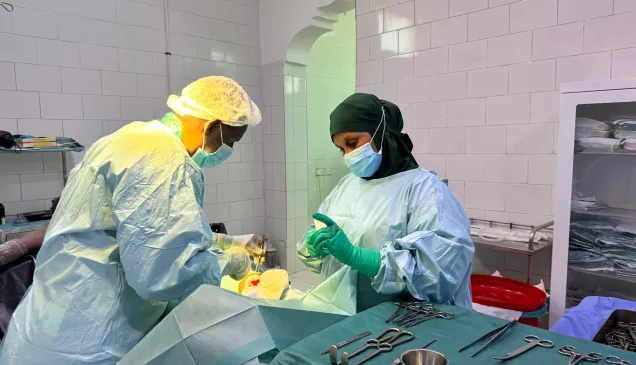"Only 20% of health facilities in Khartoum are still functioning, a true collapse of the system right when it’s needed the most. That’s why getting these critical medical supplies to the few functioning hospitals is a matter of life and death," said Alfonso Verdu Perez, the head of the ICRC delegation in Sudan. "Hospitals also urgently need water, electricity and a safe environment for their patients and staff. We appeal to the parties to respect the work of medical personnel. Lives depend on it."
Over 700 people have been killed and more than 5,000 injured since fighting broke out on April 15, according to health authorities in Sudan. In addition, critical civilian infrastructure, including health facilities, water, and electricity installations, have been severely damaged, leaving a capital city with a population of 5 million people without access to these vital services. At the same time, alarming reports of attacks against health-care personnel, health-care facilities, and ambulances continue to emerge.
In addition to delivering surgical supplies in collaboration with the Federal Ministry of Health, the ICRC is cooperating closely with the Sudanese Red Crescent Society, whose volunteers help to collect and identify mortal remains. The ICRC is also in dialogue with all the parties on the ground to facilitate medical evacuations of wounded people and to continue to remind the parties of their obligations under international humanitarian law.
Alyona Synenko, ICRC Nairobi, tel: +254 716 897 265, asynenko@icrc.org



